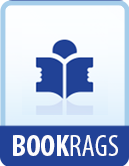That this subject of early training is a vitally interesting one to thinking people cannot be denied. The kindergarten has become the fashion, you say, cynically. This is scarcely true; but it is a fact that the upper, the middle, and the lower classes among us begin to recognize the existence of children under six years of age, and realize that far from being nonentities in life, or unknown quantities, they are very lively units in the sum of progressive education.
When we speak of kindergarten work among the children of the poor, and argue its claims as one of the best means of taking unfortunate little Arabs from the demoralizing life of the streets, and of giving their aimless hands something useful to do, their restless minds something good and fruitful to think of, and their curious eyes something beautiful to look on, there is not a word of disapproval. People seem willing to concede its moral value when applied to the lower classes, but, when they are obliged to pay anything to procure this training for their own children, or see any prospect of what they call an already extravagant school system made more so by its addition, they become prolific in doubts. In other words, they believe in it when you call it philanthropy, but not when you call it education; and it must be called the germ of the better education, toward which we are all struggling, the nearest approach to the perfect beginning which we have yet found.
We see in the excellence of Froebel’s idea, educationally considered, its only claim to peculiar power in dealing with incipient hoodlumism. It is only because it has such unusual fitness to child-nature, such a store of philosophy and ingenuity in its appliances, and such a wealth of spiritual truth in its aims and methods, that it is so great a power with neglected children and ignorant and vicious parents.
The principles on which Froebel built his educational idea may be summed up briefly under four heads. First, All the faculties of the child are to be drawn out and exercised as far as age allows. Second, The powers of habit and association, which are the great instruments of all education, of the whole training of life, must be developed with a systematic purpose from the earliest dawn of intelligence. Third, The active instincts of childhood are to be cultivated through manual exercise (chiefly creative in character), which is made an essential part of the training, and this manual exercise is to be valued chiefly as a means of self-expression. Fourth, The senses are to be trained to accuracy as well as the hand. The child must learn how to observe what is placed before him, and to observe it truly, an acquirement which any teacher of science or art will appreciate. To work out these principles, Froebel devised his practical method of infant education, and the very name he gave to the place where his play lessons were to be used marks his purpose. No books are to be seen in a kindergarten, because no ideas or facts are presented to the child that he cannot clearly understand and verify. The object is not to teach him arithmetic or geometry, though he learns enough of both to be very useful to him hereafter; but to lead him to discover truths concerning forms and numbers, lines and angles, for himself.




